20 Immune-Boosting Superfoods You Should Include in Your Diet
Eating the right foods is one of the best ways to keep your immune system strong and ready to fight off illness. Superfoods are packed with vitamins, minerals, and antioxidants that help support your body’s natural defenses. Incorporating these nutrient-rich foods into your diet can provide lasting benefits for your overall health. In this article, we will explore superfoods that can give your immune system the boost it needs.
This post may contain affiliate links, which helps keep this content free. Please read our disclosure for more info.
Garlic

Garlic is known for its immune-boosting properties, largely due to its high levels of allicin. This sulfur compound has been shown to stimulate the production of white blood cells, which are key players in your immune response. Garlic also has antibacterial and antiviral properties, making it effective against a variety of pathogens. Adding garlic to your meals can be an easy and flavorful way to boost your body’s natural defenses.
In addition to its immune-boosting capabilities, garlic supports cardiovascular health by helping to lower blood pressure and cholesterol levels. It is also believed to have anti-inflammatory effects, which can reduce the risk of chronic illnesses. Garlic can be consumed raw or cooked, and either form offers health benefits. If you want to strengthen your immune system naturally, incorporating garlic into your diet is an excellent choice.
Ginger

Ginger has long been used for its medicinal properties, especially for its ability to fight off infections. It contains bioactive compounds like gingerol, which have strong antioxidant and anti-inflammatory properties. These compounds help reduce oxidative stress, which can weaken the immune system. Consuming ginger regularly can help support your immune function and reduce the severity of cold and flu symptoms.
Ginger also promotes healthy digestion and has been used to soothe nausea, which can sometimes be a symptom of illness. Its antibacterial and antiviral properties make it an excellent natural remedy for preventing infections. Whether you add ginger to your tea, smoothies, or meals, it is a versatile superfood with significant immune-boosting benefits. Drinking ginger tea, especially during colder months, can be an effective way to strengthen your immune system.
Spinach
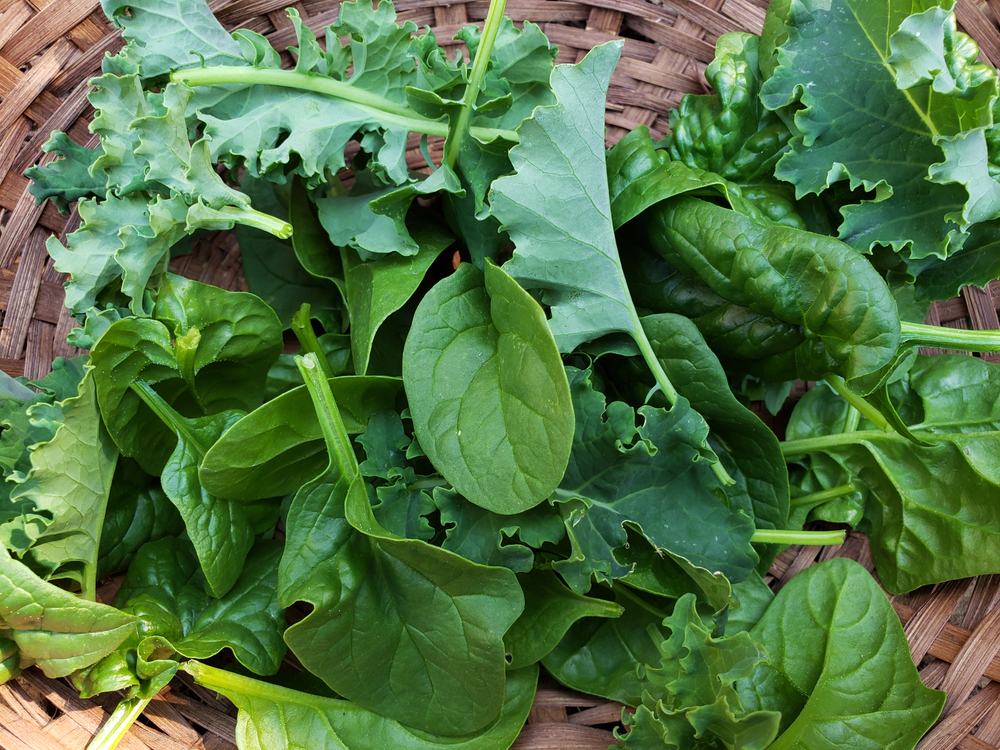
Spinach is packed with vitamins A, C, and E, which are essential for boosting your immune system. It also contains iron and folate, which help your body maintain energy levels and fight off infection. The high levels of antioxidants found in spinach help reduce inflammation and protect your cells from damage. Including spinach in your meals can support both your immune and overall health.
Rich in fiber and water, spinach also promotes good digestion, which is essential for a healthy immune system. The green leafy vegetable contains flavonoids, which have anti-inflammatory properties and can help strengthen your body’s defenses. Consuming spinach regularly helps keep your body hydrated and your immune system functioning properly. Whether in salads, soups, or smoothies, spinach is a simple way to support your immunity.
Turmeric
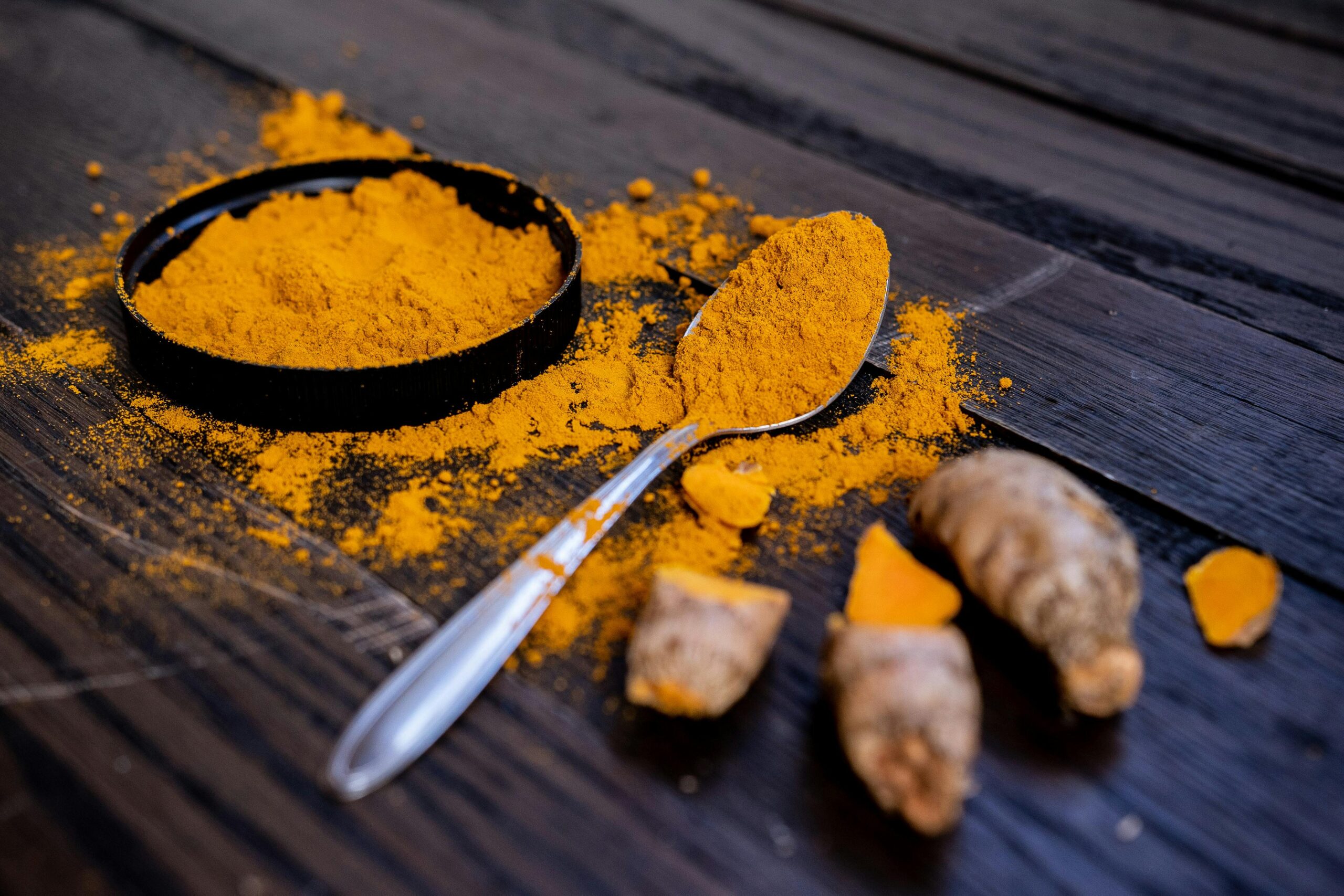
Turmeric is often referred to as a superfood because of its powerful anti-inflammatory and antioxidant properties. Its main active ingredient, curcumin, is responsible for these immune-boosting effects. Curcumin helps modulate the immune system by reducing inflammation and promoting the production of protective immune cells. Including turmeric in your diet can help reduce the risk of chronic diseases and support overall immune health.
Turmeric is also believed to improve joint health and may aid in digestion. Its ability to enhance the body’s response to infections makes it an ideal addition to any diet. You can easily incorporate turmeric into your meals by adding it to curries, smoothies, or even as a seasoning for roasted vegetables. Drinking turmeric tea or adding it to soups are other great ways to reap its benefits.
Citrus Fruits

Citrus fruits, such as oranges, lemons, and grapefruits, are high in vitamin C, which is essential for a strong immune system. Vitamin C is known to stimulate the production of white blood cells, which help protect the body from harmful pathogens. It also helps to regenerate other antioxidants in the body, further enhancing your immune defenses. Eating citrus fruits regularly can give your body a natural immune boost.
In addition to vitamin C, citrus fruits contain fiber, which supports digestive health and helps maintain a healthy gut. A healthy gut plays a crucial role in immune function, as much of the body’s immune system resides in the intestines. These fruits are also hydrating and refreshing, making them perfect for staying hydrated while strengthening your immune system. Try adding slices of citrus to water or eating them as a snack for a healthy and immune-boosting treat.
Almonds

Almonds are an excellent source of vitamin E, which is crucial for maintaining a strong immune system. Vitamin E acts as a powerful antioxidant that helps protect cells from damage and supports the proper function of immune cells. Almonds are also rich in healthy fats, protein, and fiber, making them a filling snack that helps sustain energy levels. Including almonds in your diet regularly can help keep your immune system strong and ready to fight off infections.
Almonds support heart health and regulate blood sugar levels. The combination of healthy fats and antioxidants in almonds helps reduce inflammation, which can weaken the immune system over time. You can enjoy almonds on their own, in smoothies, or as part of a healthy salad or trail mix. For an extra immunity boost, try pairing almonds with citrus fruits or other vitamin C-rich foods.
Yogurt

Yogurt, particularly those with live probiotic cultures, is a great way to improve gut health, which is directly linked to immune function. The probiotics found in yogurt help maintain a healthy balance of good bacteria in the gut, which is essential for effective immune responses. Yogurt is also rich in protein, calcium, and B vitamins, making it a nutritious option for overall health. Adding yogurt to your diet can help promote a healthy immune system and improve digestion.
Yogurt can also support bone health due to its high calcium content. The live bacteria in yogurt help reduce inflammation and enhance the body’s ability to fight infections. You can enjoy yogurt on its own, in smoothies, or as a topping for fruits and granola. Choose plain, unsweetened yogurt for the most health benefits and to avoid added sugars.
Blueberries

Blueberries are packed with antioxidants, particularly flavonoids, which help reduce oxidative stress and inflammation in the body. These antioxidants support immune cell function and help protect against the damage caused by free radicals. Blueberries are also rich in vitamin C, making them a great addition to your diet for boosting immune health. Adding blueberries to your daily meals can provide a delicious and nutritious way to strengthen your immune system.
These are known for their cognitive benefits. They help improve memory and protect the brain from age-related diseases. Blueberries are low in calories and can be easily added to smoothies, oatmeal, or eaten as a snack. Their vibrant color and sweet taste make them an enjoyable and healthy addition to any diet.
Green Tea

Green tea is known for its high levels of antioxidants, particularly catechins, which have been shown to enhance immune function. These antioxidants help protect cells from damage and support the body’s ability to fight off infections. Drinking green tea regularly can also help reduce inflammation, which is key to maintaining a strong immune system. If you are looking for a natural way to boost your immunity, sipping green tea daily can be an easy and effective solution.
In addition to its immune-boosting effects, green tea has been shown to improve heart health and metabolism. The polyphenols found in green tea help improve blood circulation and may help prevent chronic diseases. To enjoy the full benefits of green tea, it is best to drink it without added sugar. You can also try combining green tea with honey or lemon for an extra immune boost.
Red Bell Peppers

Red bell peppers are an excellent source of vitamin C, containing more of the nutrient than citrus fruits. Vitamin C is essential for the production of white blood cells, which are critical for fighting off infections. These peppers are also rich in beta-carotene, which the body converts into vitamin A to support the immune system. Including red bell peppers in your diet can help strengthen your body’s ability to ward off illness.
Red bell peppers are low in calories and high in fiber. They support healthy vision, skin, and cell function, all of which contribute to overall wellness. Red bell peppers can be eaten raw, added to salads, or incorporated into cooked dishes. Their sweet, crunchy texture and vibrant color make them a tasty and nutritious addition to any meal.
Mushrooms
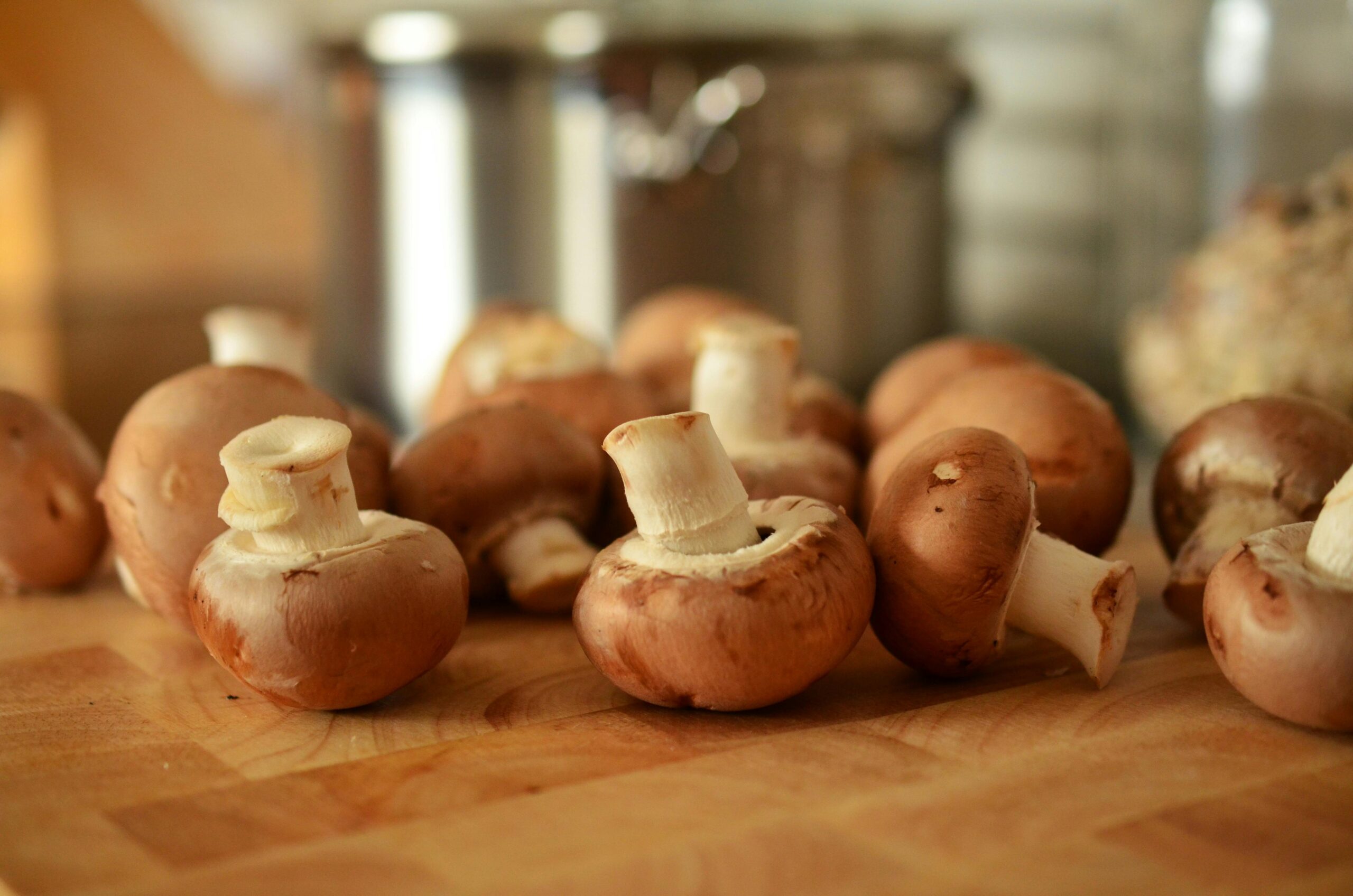
Mushrooms, especially varieties like shiitake, maitake, and reishi, are well-known for their immune-boosting properties. They contain beta-glucans, which stimulate the production of white blood cells, enhancing your immune response. Mushrooms are also rich in antioxidants, such as selenium and ergothioneine, that help protect the body from oxidative damage. Including mushrooms in your diet can provide a natural way to improve immune function and prevent infections.
It supports cardiovascular health and helps regulate blood sugar levels. They are low in calories and high in vitamins like B2, B3, and D, making them a nutritious addition to your meals. Mushrooms can be added to soups, stews, stir-fries, or even eaten raw in salads. Their rich umami flavor makes them a versatile ingredient in a variety of dishes.
Pomegranate
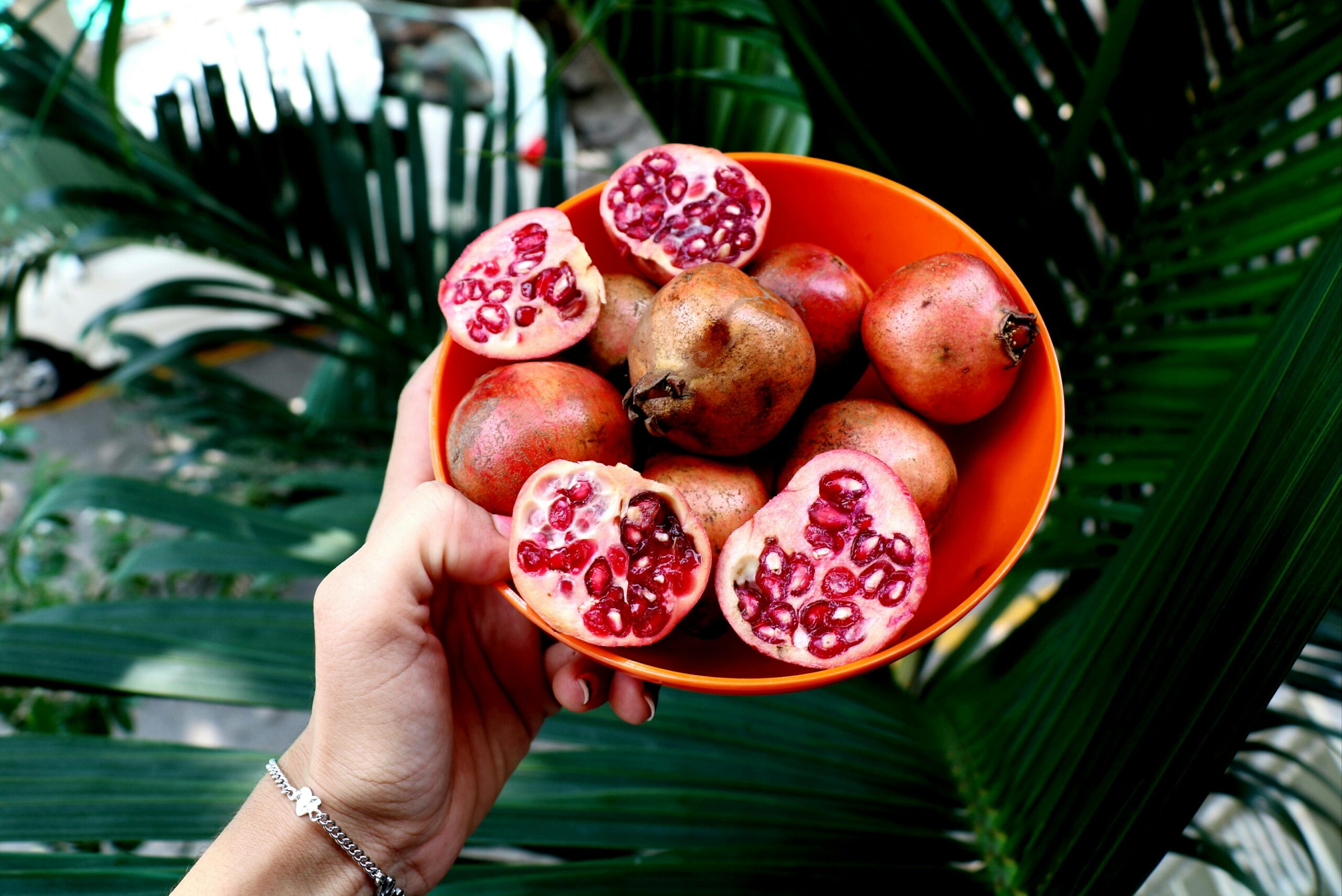
Pomegranates are packed with antioxidants, particularly polyphenols, which help reduce inflammation and protect the body from harmful free radicals. These antioxidants support immune health by promoting the production of immune cells and improving their effectiveness in fighting off infections. Pomegranates are also a good source of vitamin C, which plays a vital role in supporting the immune system. Adding pomegranate seeds to your diet can give your immune system a natural boost.
Pomegranates are known for their heart-healthy benefits. They can help reduce blood pressure and cholesterol levels, promoting overall cardiovascular health. The sweet-tart flavor of pomegranates makes them a delicious addition to smoothies, salads, or as a topping for yogurt. Pomegranate juice is another great way to enjoy its immune-enhancing benefits.
Sweet Potatoes

Sweet potatoes are rich in beta-carotene, which the body converts into vitamin A, an essential nutrient for immune function. Vitamin A helps maintain the health of mucosal surfaces, such as the respiratory and digestive systems, which are the body’s first line of defense against infections. Sweet potatoes also provide vitamin C and fiber, which further support immune health and digestion. Including sweet potatoes in your meals can help keep your immune system strong and balanced.
Sweet potatoes are a great source of antioxidants that help reduce inflammation. They are also known to support healthy vision and skin due to their high vitamin A content. You can enjoy sweet potatoes roasted, mashed, or added to soups and stews. Their naturally sweet flavor makes them a comforting and nutritious addition to any meal.
Avocados
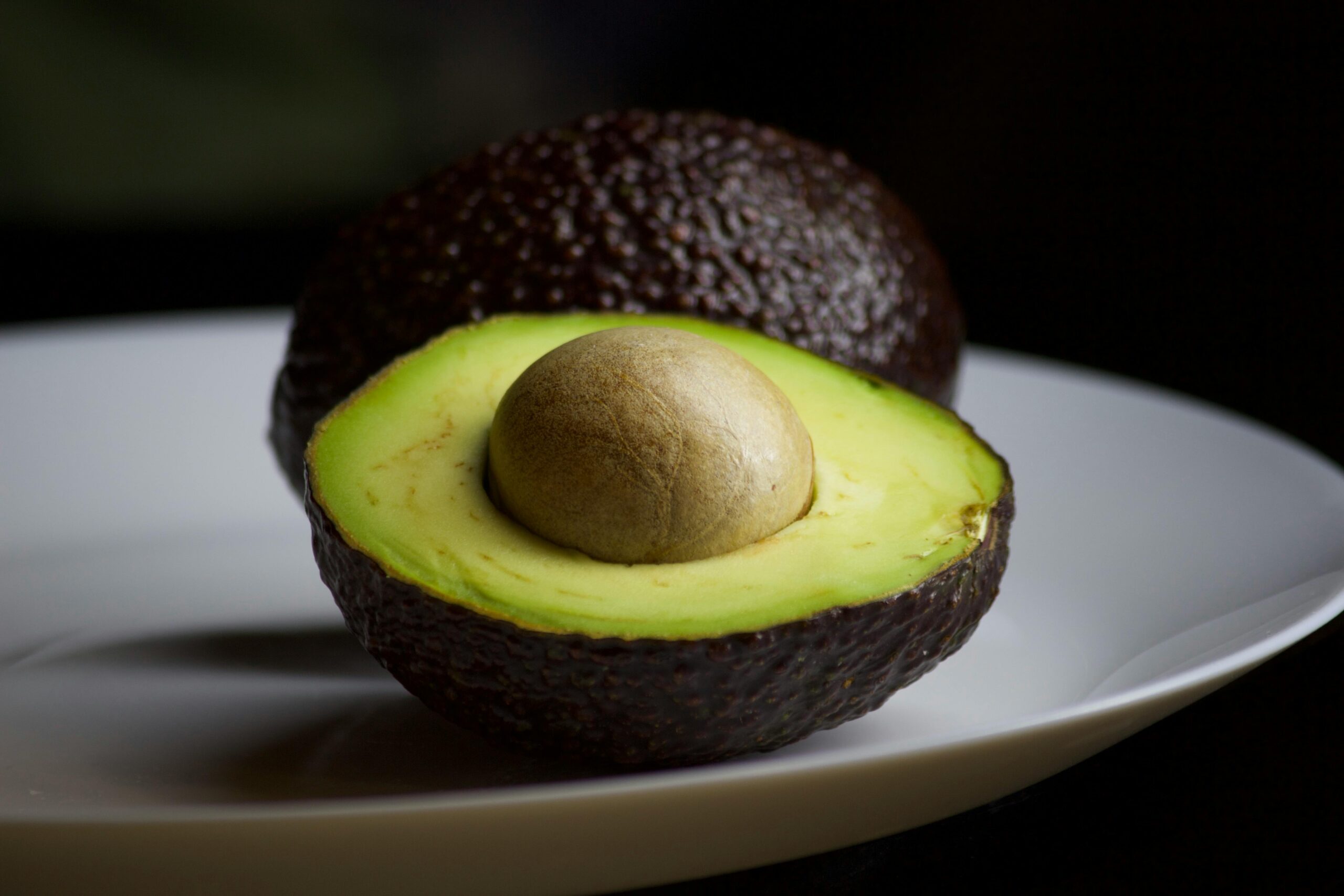
Avocados are loaded with healthy fats, particularly monounsaturated fats, which help reduce inflammation and support overall immune health. These fats are essential for the production of immune cells, helping your body fight off infections. Avocados are also rich in vitamins C, E, and B6, which help strengthen the immune system and support energy production. Including avocados in your diet can provide a natural source of nutrients that promote better immunity.
In addition to their immune benefits, avocados are great for maintaining heart health and healthy skin. They are high in potassium, which helps regulate blood pressure and prevent heart disease. You can enjoy avocados in salads, sandwiches, or as a topping for toast. Their creamy texture and mild flavor make them a versatile and nutritious addition to any meal.
Broccoli
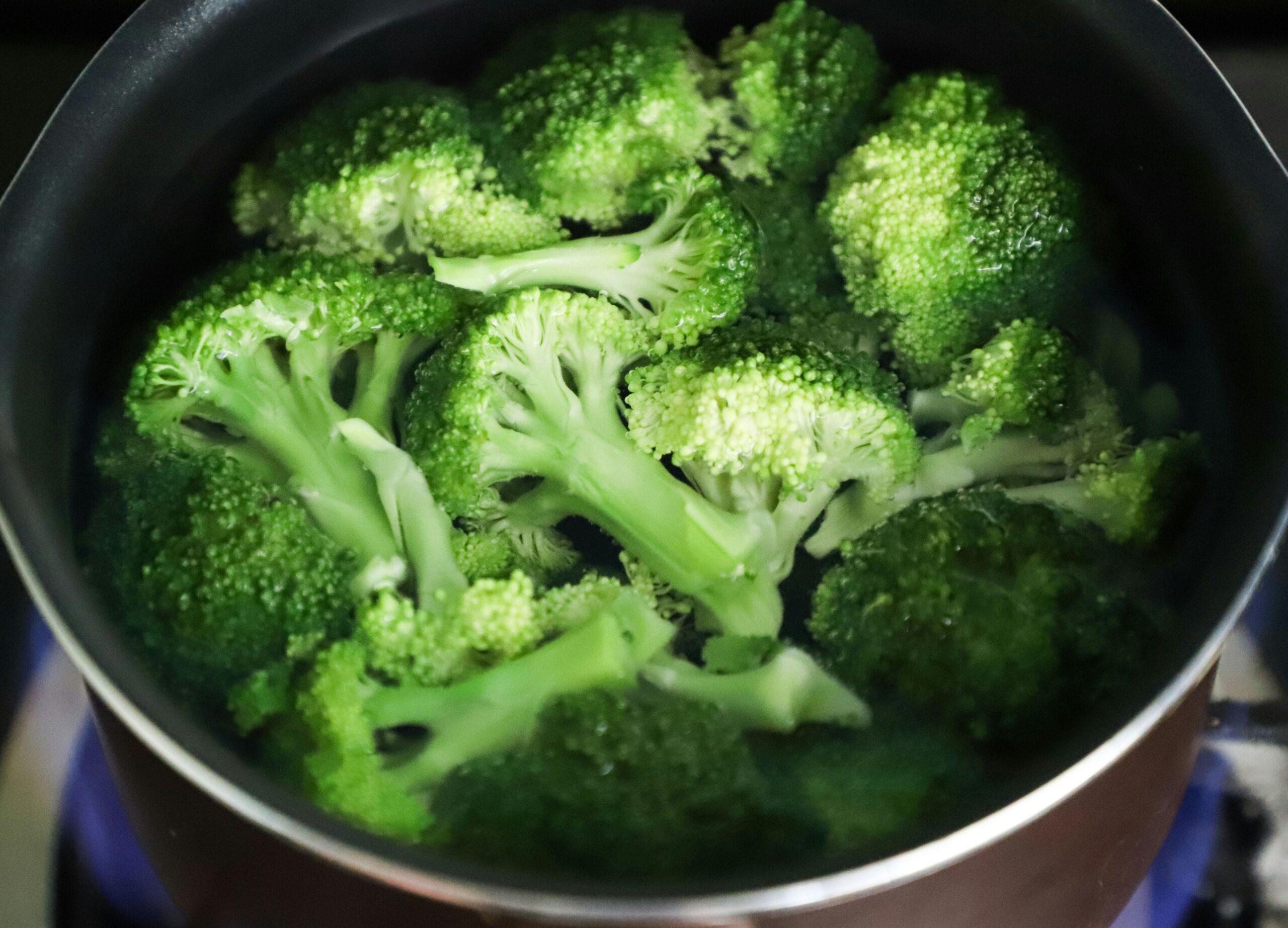
Broccoli is a powerhouse of nutrients, including vitamins C and E, which are vital for a healthy immune system. The high fiber content in broccoli also supports digestive health, which is closely linked to immune function. It contains sulforaphane, a compound that has been shown to improve immune response by reducing inflammation. Including broccoli in your meals can help keep your immune system strong and ready to fight off infections.
Broccoli is also rich in antioxidants, which protect your cells from oxidative damage and help maintain healthy tissue. It has been linked to a reduced risk of chronic diseases, such as heart disease and cancer. Broccoli can be enjoyed raw, steamed, or added to soups and stir-fries. Its mild flavor and crunchy texture make it a versatile vegetable in many dishes.
Carrots

Carrots are an excellent source of beta-carotene, which supports immune function by helping to produce vitamin A. Vitamin A plays a key role in maintaining the health of your skin and mucosal surfaces, which are essential for defending against pathogens. Carrots also provide vitamin C, which strengthens your immune system and aids in the production of collagen. Including carrots in your diet is a simple way to support both your immune health and overall well-being.
In addition to their immune-boosting benefits, carrots are rich in antioxidants that help fight off free radicals and reduce inflammation. They are also high in fiber, which promotes healthy digestion and supports gut health. Carrots can be eaten raw, roasted, or added to soups, stews, and salads. Their natural sweetness and crunch make them a delicious and nutritious snack.
Chia Seeds
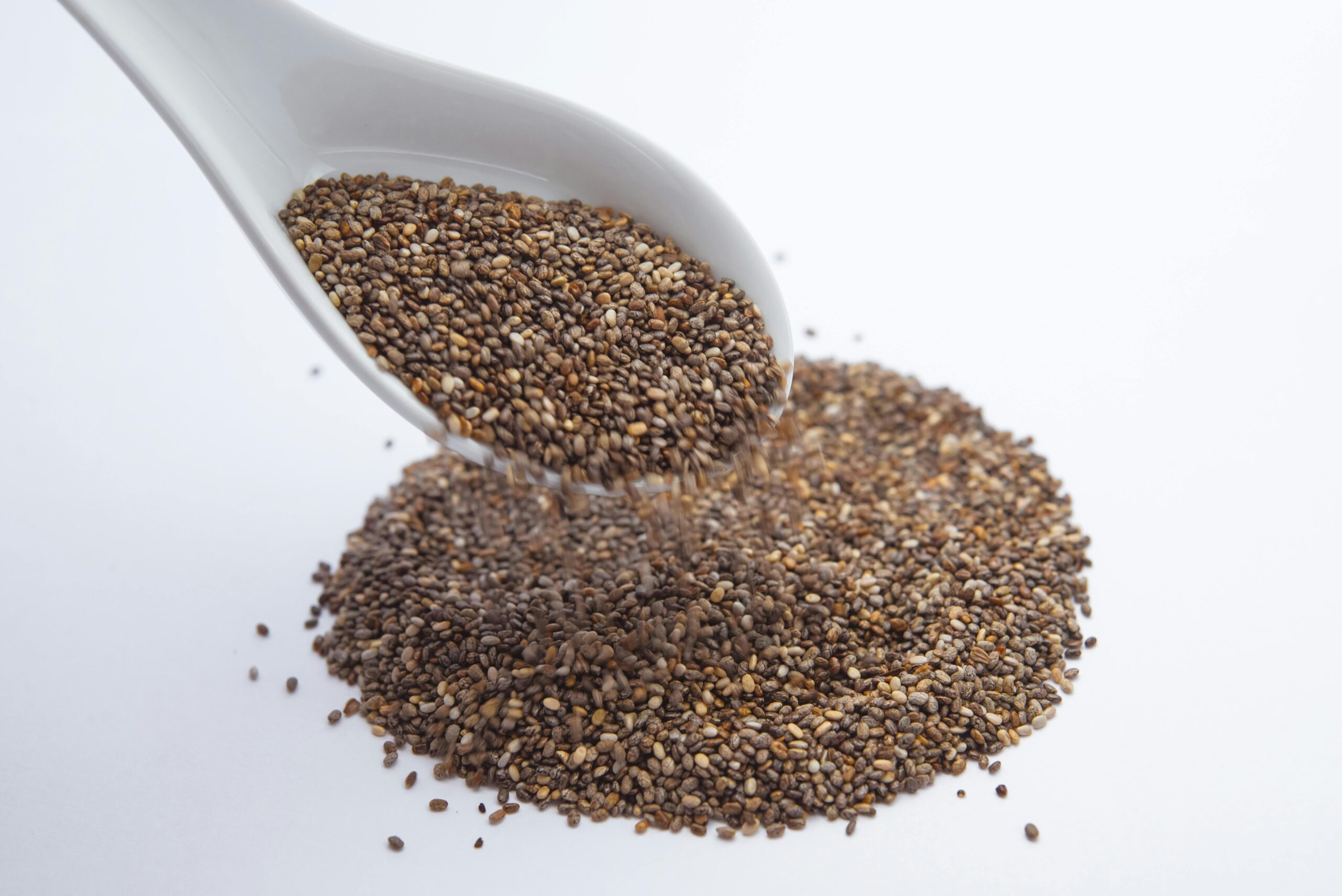
Chia seeds are loaded with omega-3 fatty acids, which are known to reduce inflammation and support immune health. These healthy fats help the body produce immune cells that are crucial for defending against infections. Chia seeds are also high in fiber, protein, and antioxidants, which further promote immune function and protect the body from harmful free radicals. Adding chia seeds to your diet can help boost your immune system and improve overall health.
Chia seeds are great for maintaining heart health and stabilizing blood sugar levels. They can be easily added to smoothies, oatmeal, or baked goods, providing a nutritional boost to your meals. Chia seeds also have a hydrating effect, as they absorb liquid and expand in your stomach. This makes them an excellent addition to your diet for staying hydrated and maintaining immune strength.
Tomatoes

Tomatoes are an excellent source of vitamin C, which is essential for the production of white blood cells that help fight off infections. They also contain lycopene, an antioxidant that has been shown to reduce inflammation and support immune health. Lycopene has been linked to a reduced risk of chronic diseases, such as heart disease and cancer. Including tomatoes in your diet is a delicious way to strengthen your immune system and protect your body from harmful invaders.
In addition to their immune-boosting benefits, tomatoes are rich in fiber, which supports digestive health. A healthy digestive system is crucial for maintaining a strong immune response. Tomatoes can be enjoyed fresh in salads, cooked in sauces, or added to soups and stews. Their tangy flavor and versatility make them a staple ingredient in many cuisines.
Coconut

Coconut is a great source of medium-chain triglycerides (MCTs), which have been shown to enhance the body’s immune response. These healthy fats help reduce inflammation and support the production of immune cells. Coconut is also rich in vitamins and minerals, such as vitamin C, magnesium, and potassium, which further promote immune health. Including coconut in your diet, whether as coconut oil, coconut milk, or shredded coconut, can help boost your immune system.
Coconut supports digestive health and promotes hydration. The natural electrolytes in coconut water help maintain proper fluid balance in the body. Coconut can be used in smoothies, curries, or as a topping for desserts. Its rich flavor and health benefits make it a great addition to a balanced diet.
Kale
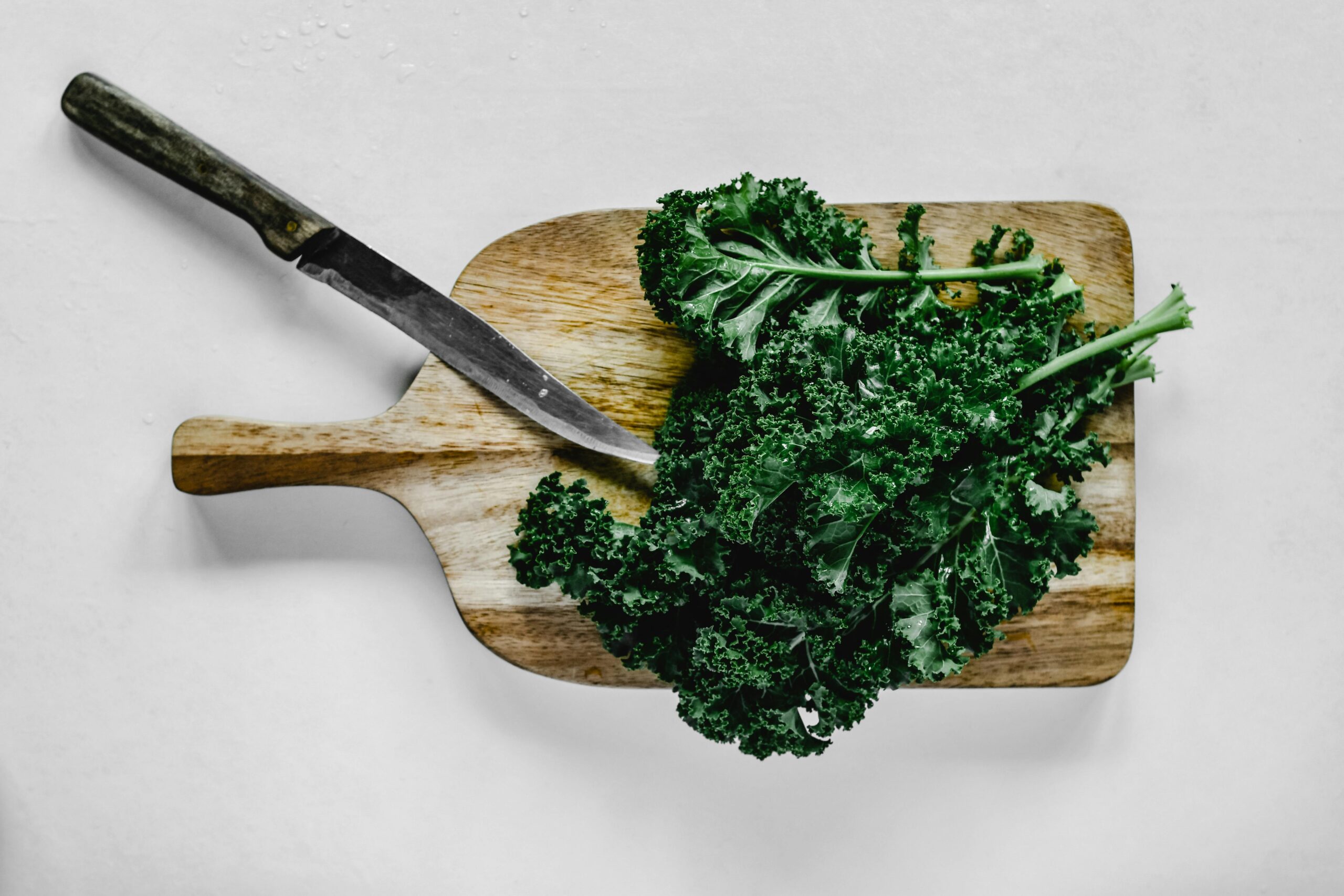
Kale is a nutrient-dense leafy green that is packed with vitamins A, C, and K, all of which are essential for immune health. These vitamins help stimulate the production of immune cells and reduce inflammation. Kale also contains antioxidants, such as quercetin and kaempferol, which help protect the body from oxidative stress and support immune function. Including kale in your diet can help strengthen your immune system and support overall health.
Kale is high in fiber, which supports healthy digestion and promotes gut health. A healthy gut is crucial for a strong immune response, as much of the body’s immune system resides in the intestines. Kale can be enjoyed in salads, soups, or smoothies. Its mild flavor and versatility make it an excellent addition to any meal.
Adding these superfoods to your diet can provide a natural and effective way to strengthen your immune system. By choosing nutrient-rich foods like citrus fruits, leafy greens, and antioxidant-packed berries, you give your body the support it needs to fight off infections. A healthy immune system is built over time with consistent, balanced nutrition. Begin including these superfoods in your meals today for a stronger, healthier tomorrow.
This article originally appeared on Avocadu.
